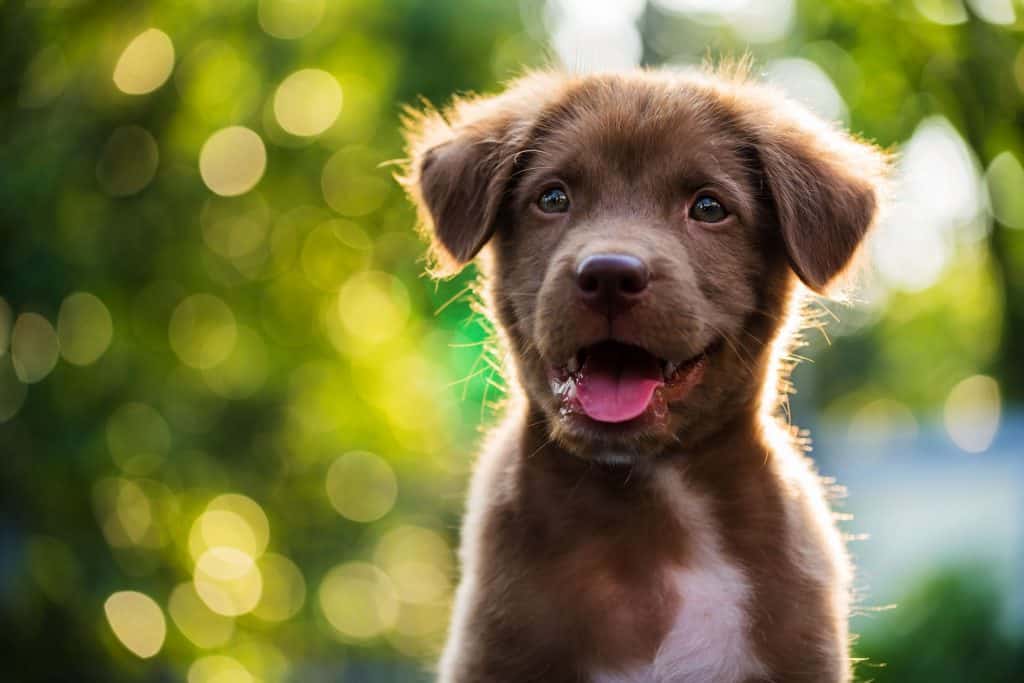FAQ Guide for New Puppy Parents
FAQ Guide for New Puppy Parents

There’s nothing quite like bringing home a new puppy. If it’s been a while since you last had a puppy or you’ve never adopted a puppy before, you’re in for a wild and rewarding ride. Of course, you probably have a ton of questions. From figuring out potty training to knowing when to spay or neuter your young dog, there’s a lot to learn. Take a look at these FAQs to prepare for your journey through puppy parenthood.
What is the Best Puppy Breed for You or Your Family?
Labradors, shepherds, and pugs, oh my! When you’re looking for a sweet and friendly dog to bring home as a puppy, there are several breeds to consider. But how do you know which one is right for you?
We love pointing our clients to the American Kennel Club (AKC) dog breed quiz. It’ll ask you questions about how trainable, energetic, and vocal you want your dog to be. You’ll also be asked whether you have children or other pets—and whether you’ve owned a dog before.
The quiz will offer five dog breeds that match some or most of your preferences. We recommend searching out dog owners for the top two or three breeds that you believe you’d click with. See if you can spend time with the dog and get a feel for what it’s like to have a dog of that breed.
You might think you’d love an Alaskan Malamute, for example—until it starts howling and yowling in excitement when it sees you. Or maybe you’ll discover that you adore your talkative new buddy and want to bring your own Malamute home ASAP!
How Do I Potty Train My Puppy?
The first rule of potty training a puppy is that “There Will Be Accidents.” Lots of them. Prepare yourself by purchasing a bottle of pet stain and odor remover and lots of paper towels. You may want to invest in a handheld carpet cleaning machine, too.
Next, keep in mind that puppies can only hold their pee and poop in for one or two hours. Establishing a routine is key. You’ll need to take your furball outside to go potty right after they wake up, directly after they drink water or eat food, and every hour or so in between.
Each time your pet pees or poops in your designated potty area, reward them with a treat and lots of belly rubs. When accidents happen, clean them up promptly and use that odor remover to get rid of the scent so your pup won’t be tempted to go potty there again. If you can catch your pup in the act of pooping or peeing inside, gently carry them outside to finish. Don’t react with anger or attempt to punish your puppy for accidents. This always does more harm than good.
Over time, your pet will begin to scratch at the door, bark, and show other signs of needing to go outside. Praise your dog when this happens. You’re on your way to a house trained puppy!
How to Puppy-Proof Your Home
Puppies are curious balls of energetic fluff. They’ll get into just about anything, so it’s important to puppy-proof your home before you bring Baby Fido home. Move all your medications into a locked cabinet. Stow all the cords around your television or get pet-resistant cord concealers to help keep your puppy safe if they decide to go on a chewing spree.
Add childproof locks to any cabinets that contain cleaning supplies. Make sure you don’t have any poisonous plants growing in your yard—or as houseplants. (Looking at you, aloe vera and devil’s ivy!)
To learn more about how to prepare your home for your new puppy, call us at (705) 223-3404. Our veterinarians will help you get ready—and then we’ll celebrate your new furball with you!
